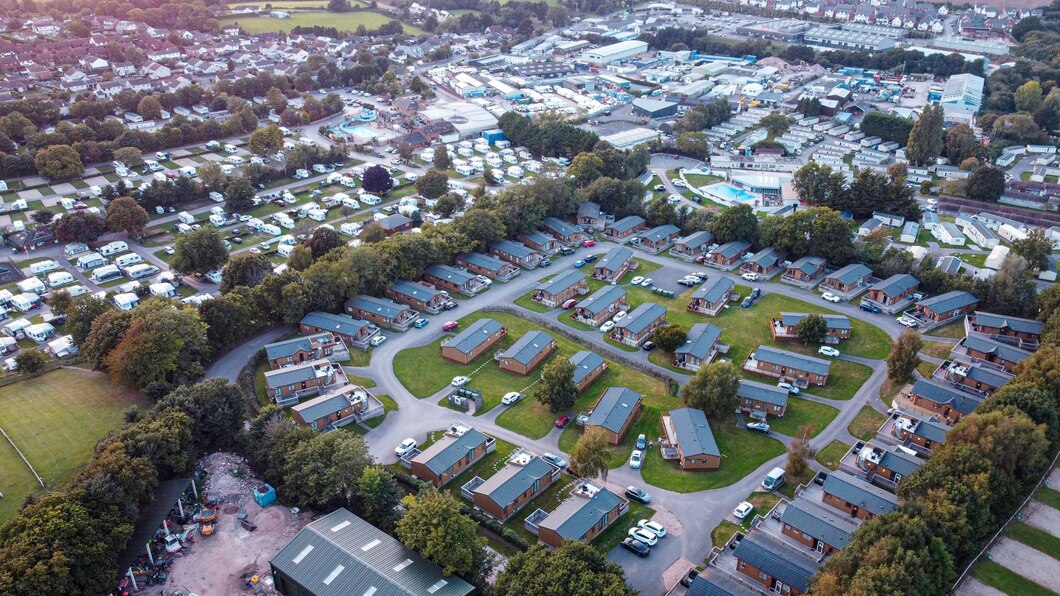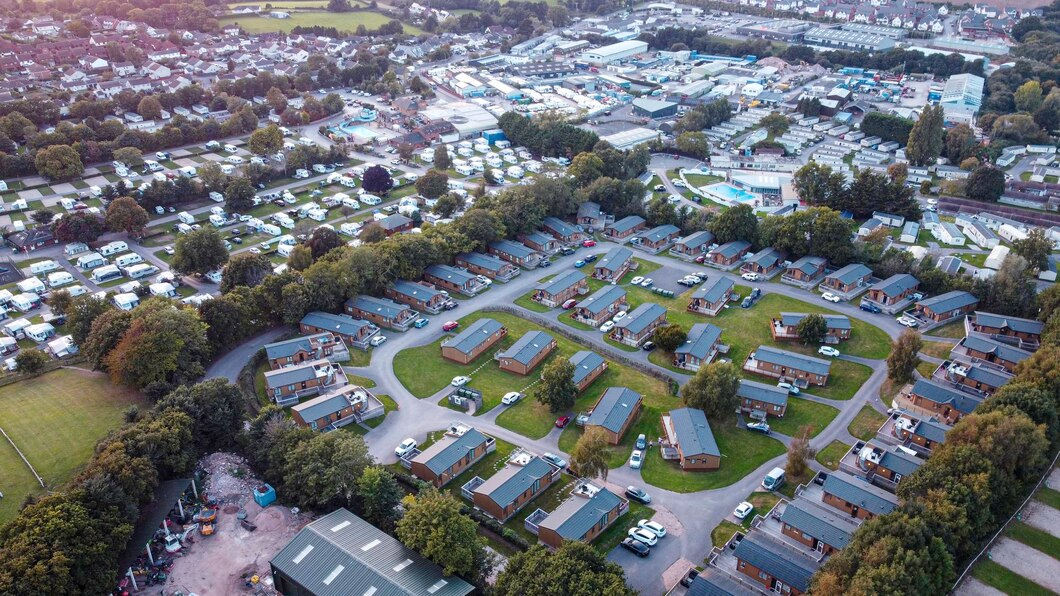
Lot size is one of the most important aspects of real estate, influencing everything from property value and aesthetic appeal to long-term investment potential and marketability. While the actual size of the property may seem like a simple, measurable factor, its impact on real estate decisions is profound. For both buyers and investors, understanding the role of lot size is key to making informed, strategic choices. Whether you're seeking a large estate for personal enjoyment or a smaller lot to minimize maintenance, the size of the lot plays a vital role in shaping a property’s overall potential.
From a real estate expert's perspective, lot size represents much more than just the available space; it’s a window into the lifestyle opportunities, development possibilities, and investment returns associated with a particular property. In this expanded article, we explore the multifaceted impact of lot size on real estate, including its influence on property value, market dynamics, and investment strategies.

What Is Lot Size?
Lot size refers to the total area of land associated with a particular property. It is typically measured in square feet, square meters, or acres, depending on regional standards, and it includes the footprint of the building(s) as well as any surrounding yard, driveway, garden, or open space. The lot serves as the physical foundation of the property, providing both functional and aesthetic value. Understanding lot size is crucial because it impacts how the land can be used, the amount of outdoor space available, the potential for future development or expansion, and even the property's legal boundaries.
For residential properties, lot size often determines whether there is enough room for features like a backyard, a pool, or a detached garage. For commercial and investment properties, it affects development scope, parking capacity, and building code compliance. Moreover, local zoning laws may impose restrictions based on lot size, influencing the number and type of structures that can be built.
Lot size can vary dramatically depending on location. In dense urban settings, lots tend to be smaller to maximize land use and accommodate higher population density. In contrast, suburban and rural areas often feature larger lots, providing more space and privacy. However, a larger lot doesn’t automatically equate to higher value—its utility, accessibility, and the market demand in that specific area all play a role in how valuable it really is.
In essence, lot size is more than a numerical figure; it’s a foundational component of the property that influences livability, usability, and long-term potential. Whether buying, selling, or investing, a clear understanding of what lot size entails and how it interacts with other property features is vital for making informed decisions in the real estate market.

How Lot Size Affects Property Value
Lot size plays a crucial role in determining the price of a property. In real estate, property value is determined by several factors, and lot size often tops the list. While other elements, such as location, the property's condition, and available amenities, affect value, lot size provides buyers and investors with a sense of the land's potential.
Here’s a closer look at how lot size can affect the value of a property:
1. Location and Market Demand
Lot size is influenced by market demand, which can be significantly impacted by location. Urban areas, especially those with dense populations and limited space, tend to see higher prices for smaller lots due to the scarcity of land. Buyers in cities are often willing to sacrifice outdoor space in exchange for proximity to amenities, public transportation, and employment centers. For example, a small lot in New York City or San Francisco can fetch a much higher price than a similarly sized lot in a rural area.
Conversely, in suburban and rural areas, buyers tend to value larger lots more highly, as these areas provide more room for outdoor activities, privacy, and expansion. A large property in a suburban neighborhood may appeal to families with children, people looking for outdoor space, or buyers interested in adding pools, gardens, or extra structures.
2. Development Potential
For real estate investors and developers, lot size is often considered in terms of its development potential. A larger lot provides opportunities to subdivide it into multiple smaller lots, build additional structures, or expand the existing property. In many cases, zoning laws will govern how the land can be developed. Developers may be particularly interested in larger lots because they have more flexibility to build residential units, create mixed-use spaces, or construct commercial buildings.
Moreover, lot size directly affects the possibility of developing higher-density properties, such as apartment complexes or townhouses. For developers in rapidly growing areas, a larger lot presents an opportunity to capitalize on rising demand by building larger-scale projects. This development potential adds a layer of value, often reflected in the purchase price.
3. Lifestyle Preferences and Amenities
Lot size directly affects the lifestyle options available to homeowners. Larger lots offer more space for personal enjoyment, such as room for a garden, a pool, or outdoor entertainment areas. For families with children or individuals who love outdoor activities, a larger lot can be a significant selling point. The ability to host gatherings, build private retreats, or even have space for pets or livestock can make a large lot more attractive.
However, not all buyers desire large lots. Some buyers prefer homes with smaller lots to reduce the time and expense spent on maintenance. A smaller lot may appeal to those who prefer low-maintenance living, such as young professionals, retirees, or busy individuals. In this case, a property with a small yard might come at a lower price point, making it attractive to buyers who don't want to deal with extensive outdoor upkeep.
4. Privacy and Environmental Considerations
Larger lots often offer a greater sense of privacy, especially in suburban or rural areas where properties are more spread out. Many buyers value privacy and seek homes with expansive yards that provide seclusion from neighbors. A larger lot can serve as a barrier to noise, traffic, and congestion, offering a more peaceful living environment.
Additionally, environmental factors such as the quality of the land, its ability to sustain landscaping or agricultural practices, and its potential vulnerability to natural disasters (e.g., floods, fires, or soil erosion) will influence both the marketability and value of the lot. Larger, well-maintained lots in areas less prone to environmental risks tend to command higher prices due to their perceived stability and long-term value.

Lot Size and Market Trends
Lot size can also have a significant influence on market trends, shaping demand for certain property types and guiding purchasing decisions. These trends vary depending on economic conditions, demographic shifts, and lifestyle changes, with recent trends showcasing how changing work habits and social norms are influencing the desire for larger lots:
1. Remote Work and the Search for Larger Lots
The COVID-19 pandemic sparked an era of remote work, leading many people to reconsider their living situations. As workers transitioned to home offices, the demand for larger homes with more spacious lots increased. People who previously lived in compact apartments or smaller homes in city centers began seeking properties with larger yards, where they could build offices, add recreational spaces, and enjoy more privacy. Suburban and rural areas, where lot sizes tend to be larger, saw a significant uptick in demand as buyers sought out more space for both work and leisure.
This shift has influenced real estate trends, with many people now prioritizing outdoor space and the ability to expand or personalize their properties. As remote work continues to be a prominent fixture of the modern workforce, the preference for larger lots will likely persist, further increasing demand for suburban and rural homes.
2. Urbanization and Vertical Living
On the other end of the spectrum, urbanization continues to drive the demand for high-rise developments in major cities. As population density increases, developers are increasingly focusing on building vertically rather than expanding horizontally. Lot size in cities, therefore, often becomes less about expansive yards and more about maximizing living space in a small footprint. For urban dwellers, being close to amenities, employment centers, and public transit often outweighs the desire for large lots.
However, even in urban areas, the demand for outdoor spaces such as rooftop gardens, balconies, or communal outdoor areas is growing, as residents increasingly seek some degree of outdoor space in dense environments. Real estate developers are responding by incorporating green spaces and small outdoor areas into their vertical developments, even when the lot size itself is limited.

What to Consider When Evaluating Lot Size
When evaluating lot size in real estate, it's essential to look beyond the surface measurement and consider the broader context that influences a property's usability and value. Lot size alone doesn't determine a property's potential—factors such as zoning regulations, terrain, access to infrastructure, and environmental conditions all play a critical role. Whether you're a homebuyer planning for future expansions, an investor exploring development options, or a developer seeking buildable land, understanding these elements can help you make more strategic and informed decisions. Taking a comprehensive approach to lot evaluation ensures that your investment aligns with your goals, budget, and long-term vision.
1. Zoning and Land Use Restrictions
Zoning laws dictate how land can be used and may place limitations on what buyers can do with a property. Before making a purchase, it is essential to check local zoning regulations to determine whether the land can be subdivided, developed, or used for specific purposes such as commercial activities. Zoning laws can greatly affect the potential for property expansion and development, so it is important to consult with local authorities and legal experts to understand these regulations.
2. Topography and Terrain
The physical characteristics of the land, such as its slope, terrain, and soil quality, can greatly impact what can be done with the property. A flat lot is much easier to develop and build upon, whereas a sloped or uneven lot may require additional investments in grading, landscaping, or foundation work. Additionally, the quality of the soil will influence what can be planted and how well the land can support structures.
3. Access to Infrastructure
Lot size isn't just about the land itself; it’s also about how that land connects to essential utilities and infrastructure. Buyers should ensure that the property has access to water, electricity, sewage systems, and roads. In rural or undeveloped areas, it might be necessary to bring these utilities to the property, which can be expensive and time-consuming. In contrast, lots in urban areas typically have access to established utilities, reducing the need for additional investments.
4. Landscaping and Outdoor Features
The potential for creating an outdoor oasis can be a major selling point for larger lots. Buyers should consider what landscaping and outdoor features they would like to incorporate, such as gardens, pools, or outdoor entertainment spaces. Larger lots offer more freedom to create these features, but they also come with the responsibility of maintenance. Smaller lots might be easier to manage but may not allow for the same degree of customization.
5. Environmental Risks
Understanding the environmental risks associated with a lot is crucial. Some properties may be located in flood zones, wildfire-prone areas, or areas with poor soil quality. These risks can impact the long-term value of the property and may require additional mitigation efforts. Buyers should always consider environmental assessments to ensure they are making a safe and informed investment.
Lot size plays a significant role in determining the value, appeal, and potential of a property. From influencing the price and marketability of real estate to providing opportunities for future development or customization, the size of the land is central to how a property functions and fits into the broader market landscape. Whether you're buying a home for personal enjoyment or investing in land for future growth, understanding how lot size impacts the market and the value of a property can help guide your decisions.
Ultimately, the right lot size for a particular buyer or investor depends on a wide range of factors, including the intended use of the property, personal preferences, environmental considerations, and market conditions. By carefully evaluating these factors, individuals can make better-informed decisions that maximize their investment and align with their long-term goals.

Get a no-obligation offer in just a few minutes.





.webp)




.webp)
